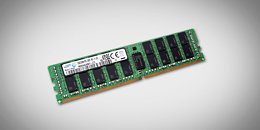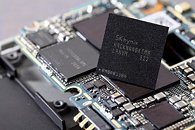Tuesday, November 20th 2018

DRAM Price-Fix Uncovered in China, 'Massive Evidence' Against Samsung, SK Hynix and Micron
The Chinese State Administration for Market Regulation has been conducting an anti-monopoly investigation of the global Dynamic RAM market. According to an interview of Wu Zenghou (bureau's head) in the Financial Times, this process has found "massive evidence" against the three companies (Samsung, Hynix, and Micron) that are responsible for the vast majority of this segment. "The anti-monopoly investigation into these three companies has made important progress", points out the investigator. On April these three companies were hit with a price-fixing suit on the same matter in the US, and this investigation seems to confirm those reports.
There is even an older precedent, as Samsung and Hynix were fined both by the US Department of Justice in 2005 and by the European Commission in 2010 on price-fixing allegations. The charges now are similar, and if the companies are found guilty, they could face fines of over $2.5 billion. Some analysts suggest this investigation could be part of the trade war between China and the US, with the former trying to get some leverage pushing the Chinese semiconductor company Fujian Jinhua Integrated Circuit as a bigger player on this market. One that, by the way, is being investigated on allegations of misappropriated trade secrets from Micron. Samsung and SK Hynix have accused China DRAM makers of industrial espionage, too.
Source:
Financial Times
There is even an older precedent, as Samsung and Hynix were fined both by the US Department of Justice in 2005 and by the European Commission in 2010 on price-fixing allegations. The charges now are similar, and if the companies are found guilty, they could face fines of over $2.5 billion. Some analysts suggest this investigation could be part of the trade war between China and the US, with the former trying to get some leverage pushing the Chinese semiconductor company Fujian Jinhua Integrated Circuit as a bigger player on this market. One that, by the way, is being investigated on allegations of misappropriated trade secrets from Micron. Samsung and SK Hynix have accused China DRAM makers of industrial espionage, too.


49 Comments on DRAM Price-Fix Uncovered in China, 'Massive Evidence' Against Samsung, SK Hynix and Micron
www.anandtech.com/show/12498/samsung-preps-to-build-another-multibillion-dollar-memory-fab-near-pyeongtaek
The alternative is a China owned FJIC, which probably is even worse, lest we forget what China has done to every other industry. Now if it proven without doubt that there was collusion, then all 3 need to be fined hard. But in case of Chinese courts there will always be doubts over their due process, fairness et al.
That's chump change to them, and they will just write a check to cover it.... this is equivalent to sentencing some famous, well-known rich dude to 6 months in one of those "country club prisons"
But if ya insist on imposing fines, then make 'em big enough so they will REALLY hurt.....like, maybe, like $250b for EACH company
Or better yet, just shut them down for 1 year for each and every infraction and take away all their corp jets, expense accounts etc etc.....make the people responsible for this activity actually feel da burn !!!!!!!!
I say that they need to immediately increase the fines tenfold for any repeating offender starting on the second instance.
Just stick with the larger fine. that $2.5B fine should be per company, not split between them, then scaled up based on the profit they gained from the jacked up prices.
DRAM price fixing has been going on off and on for over a decade.
If they're fined they just increase prices to cover the fines.
- Communist Party of China
www.fool.com/investing/2018/11/20/how-low-can-micron-stock-go.aspx
www.marketwatch.com/story/micron-stock-sinks-on-baird-downgrade-2018-11-20
DRAM is expected to contract through 2020 and NAND margins are expected to shrink because of Chinese competition.
In other words, Micron is getting hammered because of fear of a non-Cartel supplier (FJIC) challenging their racket.
On the other hand having a Chinese State competitor for those 3 companies, which btw, are also backed hugely up by the Government (eg: Samsung) means lower prices for the end user in the end...
You're ignoring the other elephant in the room, if CCP didn't want the IP for China then the callousness wrt FJIC would make sense. Not right now though, since China has made it clear they want high tech patents & will do anything to get their hands on it.
We're basically choosing between two evils, IMO (shared by the others) China cannot be allowed to use this excuse to get their hands on DRAM/NAND patents or use it as a bargaining tool to force the big 3 into some form of tech sharing.
I'm fine with the harshest penalty imposed on them, provided that the evidence & case against them is water tight. However breaking them up or anything similar, such a move that hinders the ability of these firms to invest long term is a big NO as far as I'm concerned.
What many don't get is that the foundry business is too risky & the returns aren't guaranteed ~ just ask Intel how their 10nm is doing. Granted these aren't the same products, nonetheless the risk/reward ratio is spectacularly high.
Fines don't work as the fines will be passed off through the chain. Breaking them up isn't feasible because of the industry. What would actually persuade a comfy CEO or board, for that matter?
Prison time. The question is who's prison?
That, or I'd just forcefully seize and nationalize 51% of each corporation's cumulative assets and holdings and enforce total transparency of their accounting for a defined period of time to be provided openly to the public.
There's definitely ONE thing I don't want to hear anyone say as in inherently limits the means to change these companies' behavior while simultaneously disempowering individuals of the general public who might not be shareholders, but are nevertheless stakeholders in the machinations of these entities: "let's vote with our money on this one"....because individuals have far l, far less money that these corporate and thus far fewer votes creating a clear tyranny of the majority.
The other inevitably, based on nearly unanimous precedent, is that when fines become the institutionalized norm and the expected extant of corrective measures anticipated by these corporations, it basically habitualizes a culture where moral considerations are only entertained when abiding by them is more profitable than violating them...in other words, if breaking the law and paying the fines is a more profitable means of conducting business than abiding by the law than no other course of action to be taken by these corporations should ever be expected.
More creative and punatice measures need to be taken in order to force these corporations to consider the desires of the STAKEHOLDERS (e.g. the general public) and not just the shareholders.